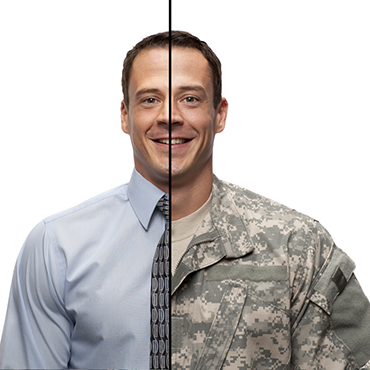Veterans and the cybersecurity gap

Vets need jobs. Everybody needs cyber-specialists. And situational awareness could be the thread to connect the two.

An increasing number of training programs are betting on the common thread of situational awareness to link combat veterans with a wide range of cybersecurity careers.
Multiple academic and business institutions have in recent months conducted training for veterans with a federal demand for cybersecurity staff in mind. The training programs come in the broader context of Defense Secretary Chuck Hagel's call for U.S. Cyber Command to have more than 6,000 staff by 2016.
Many of those "cyber warriors," however, will be highly trained specialists who are not necessarily the benchmark of programs that aim to shorten the time for veterans from deployment to employment.
By contrast, NS2 Serves -- a three-month course backed by SAP National Security Services, an independent subsidiary of software giant SAP -- works with veterans whose highest level of education might be a high school diploma.
"There are a lot of discussions out there across the nation about veteran hiring programs, but matching a veteran and their skillsets to some of the organizations that want them has been a challenge," said retired Vice Adm. Joseph Kernan, a former Navy Seal who helps run NS2 Serves.
To narrow the parameters of demand for federal IT skills and the influx of soldiers back from Iraq and Afghanistan, Kernan said his organization drew on a Labor Department database of roughly a million veterans' résumés. NS2 Serves eventually chose 17 veterans for an inaugural training class in software and supply chain management.
The group graduated May 13. "The program doesn't succeed, in our minds, unless every single veteran gets hired," Kernan said. Some of the graduates are looking to work for defense agencies or contractors, he added.
The nonprofit arm of the International Information Systems Security Certification Consortium, or (ISC)2, has also worked with a corporate heavyweight to match veterans with IT jobs.
(ISC)2 Foundation and partner Booz Allen Hamilton recently solicited applications for an annual scholarship that helps returning veterans get information-security certifications. The U.S.A. Cyber Warrior Scholarship requires more of an IT foundation than NS2 Serves. (ISC)2 Foundation Director Julie Peeler said the program targets those who used IT in the military but have yet to earn an information-security certification.
(ISC)2 noticed that many of last year's applicants came from the Army Signal Corps and the group worked to recruit applicants from similar units of other services, she said. (ISC)2 gave out six Cyber Warrior scholarships last year and expects to award 10-14 this year.
Getting the word out
For some wanting to boost the ranks of veterans working in cybersecurity, there is insufficient awareness of the opportunities available.
Maria Horton, a service-disabled veteran and former CIO of what is now Walter Reed National Military Medical Center, said her cybersecurity firm, EmeSec, has hired several veterans in recent months. But others seem to be missing the boat.
"Even when they are aware that there are opportunities in the IT digital world or even cybersecurity... they don't understand it from a translation standpoint -- what does that mean to me and how do I take advantage of it?" she said.
The need to rapidly process information for security decisions is what otherwise-incongruous scenarios on the streets of Fallujah and a dark computer room have in common. Veterans looking to join the IT workforce "need to know that their skillset isn't necessarily artillery or making rounds, but situational awareness, the ability to learn on their feet in a dynamic situation, the ability to respond," Horton said. "Those are great qualifications for information assurance and cybersecurity."
Matt Noyes, an Iraq War veteran and cybersecurity specialist at the Department of Homeland Security, agreed that veterans could be made more aware of IT opportunities.
After returning from a second tour in Iraq in 2010, Noyes went to Harvard University's Kennedy School of Government for his master's degree. He noticed a theme in the appearances of defense officials at events on campus: The government was hiring cybersecurity experts. Though cybersecurity had not been "remotely on [his] radar" when he began his graduate studies, Noyes decided to heed the top brass' call and dedicate himself to the field.
For a government and a defense industry trying to churn out cyber warriors, recruiting IT-savvy veterans and training those with fewer tech skills could prove to be two sides of the same coin.
Note: This article was updated on May 20 to clarify that NS2 Serves is backed by SAP NS2.


